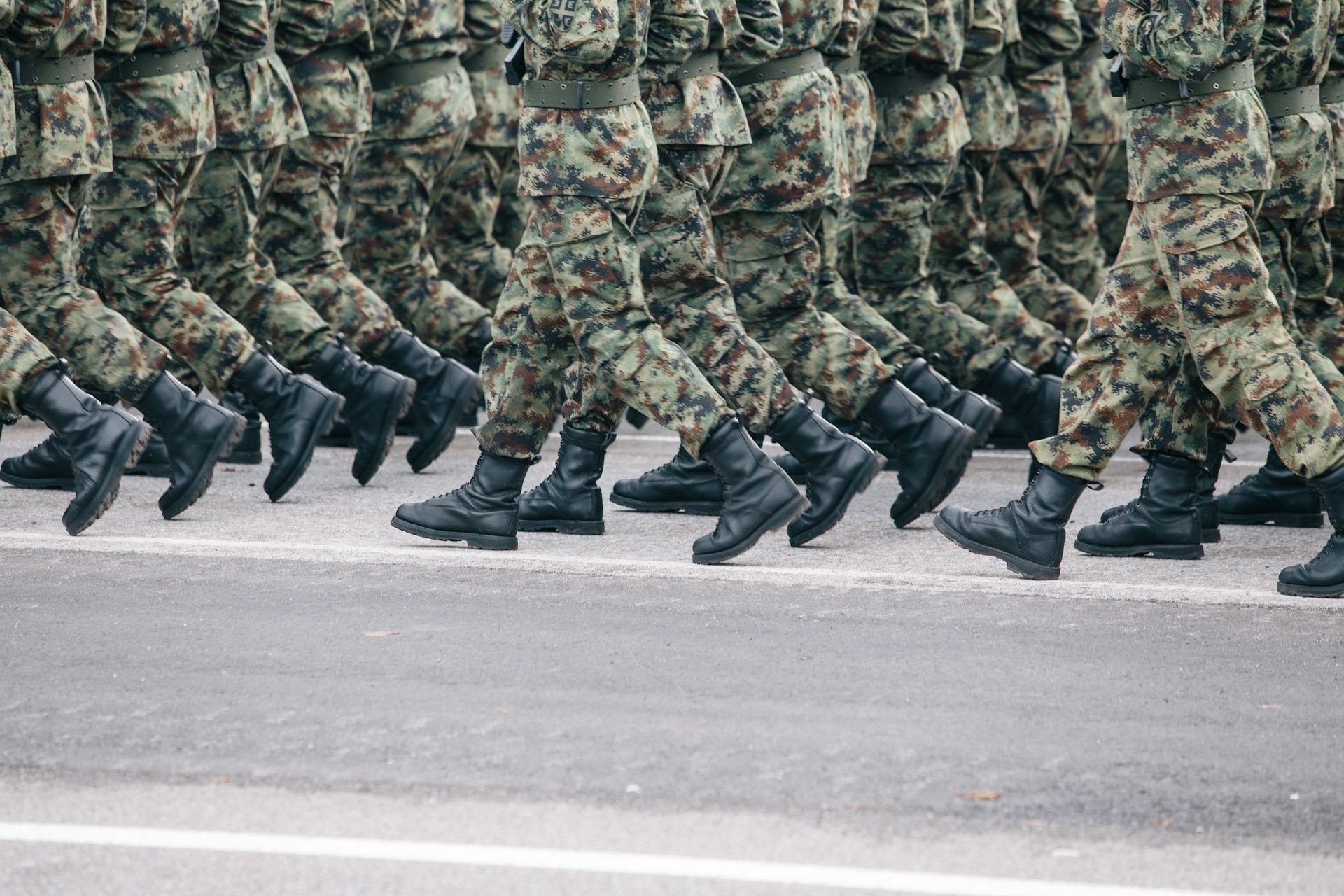Trigger Warning: Contains Graphic References to Suicide
“Don’t backchat me boooooy!” Dread skittered down my spine burrowed forward to grow the ball in my gut. The shaking subsided slowly but faster than if I’d been the target of that explosive bellow, launched inches from a young soldier’s face, rather than merely caught in its mushrooming blast zone. It wasn’t so much the shouting that scared as the menace sitting eagerly behind it, the sense the cocksure sergeant and the corporals who took his belligerent lead could act like this with impunity with buy-in right up the chain of command.
Menace was the modus operandi indoctrination through intimidation, with a generous side order of humiliation. The day our corporal told me to fetch something from his room I had to march up, halt neatly and hand it over but under his critical gaze getting it wrong was a given. Go back and do it again, he barked. And again… No acknowledgment when I got it right. He just stared daggers through me. I saw his tongue move back and forth in his closed mouth, dark eyes boring coldly into mine. He wanted to see fear. He did.
Breaking you down so they could build you up was how it had been described to me on the outside, by those on the other side… of this. That night early on he had us crouched at right angles against our metal cupboards Arms outstretched, burning, heavy boots gripped tight in faltering fingers. Shoes piled on arms—“Don’t let them fall!” Legs, arms, stomach on fire. Then the push-ups. The guy in the next barrack room losing it as the corporal hovered, counted: “I can’t do anymore, man!” The count continued… “And I’m not your man, I’m your fucking corporal!” There’s a certain warped logic to this. In battle, you need unquestioning compliance or the consequences are deadly. Mental health? Who knew what it was in 1985?
Though if it’s true they didn’t understand it they knew precisely what this place did to it. Like that visit to a barracks where a soldier at the end of himself had smuggled a round back from the shooting range, rigged his rifle to pull the trigger with his toe and ended his pain with a high-caliber bullet through the brain still visible under the fresh white paint on the wall. Why did they take us there? It wasn’t to tell us to mind our minds. It was to say being here was hard and we would have to be too. Because they were going to tell us how shit we were every single day. “Basics starts on Monday!” the shouting sergeant would warn gleefully on Friday mornings, as weekend passes neared. Intimidation through imagination.
There was the day we got back to the bungalow and they were carrying out a comrade who had overdosed on a fistful of painkillers. We’d heard he was related to someone high up in the military machine, but that had been no shield against the awfulness for him. He survived, it filtered back, though that was the last time we saw him. I hope he was discharged to recover; I hope he’s recovered still, but who would know? Certainly not those who put him through the mental anguish that took him to the place where he couldn’t see an end to it, so he tried to bring it to an end. That suicide scene in Full Metal Jacket… it’s real.
Then there was the pair enduring detention drilling, red-helmeted to show their shame to all. One tough, unflinching, no idea of his transgression, but he bore the punishment with no evidence of pain. The other soft, a pastor’s son, a gentle one. He’d stuck down a buttonhole where his corporal had ripped off a button found unfastened at inspection and arrived like that at Wednesday church parade. Helmets like warning lights, they also carried full packs. Outcasts, made an example of among the training troops watching their physical torture as we marched in time with our private fears. At lunch, at their separate table, one stared ahead, unaffected, ready for more. The other sobbed, uncontrollably, incessantly, spent. Two corporals stopped by; one comforted, the only decent one in this bunch; the other heaped on the humiliation and walked away smug, his warped work done.
Maybe some really thought they were helping. Most were thugs, bullies, strutting, arrogant, overblown. One was a rugby star, a big-noter en route to bigger things; not shy to throw his weight around, verbally, physically. One day he grabbed a recruit by the throat, angry and threatening over something trivial. Most of us didn’t react, the menace par for the course, the relief that it wasn’t us. But he went straight to the captain, ignoring a drummed-in directive to take concerns to the next link in the chain of command. It would have achieved nothing. The corporals were tight. Ours played rugby with the throttler. He was called in, for no more than a talking to, but doing what our comrade did took guts that might have been useful on the battlefield.
I don’t know if toxic and masculinity had officially met then but they were everywhere together, all the time. And it was slowly sucking my soul out, the constant air of threat. So I wasn’t really thinking straight the weekend, on pass, when I took the family car and fled, unlicensed, without a clear direction and minimal cash to my name. I just wanted to be away, from that. Not suicidal, definitely desperate. Uncertain, unthinking, unfocused. Thank God a few hours on the run brought me to my senses. That I had parents who understood, the occasional filter fault notwithstanding. That Dad’s explanation was accepted. That I could return to the roller coaster unpunished and ride it out for another 18 grinding months. Mental health? I don’t know if they knew what it was in 1985. I do know they really didn’t care.
